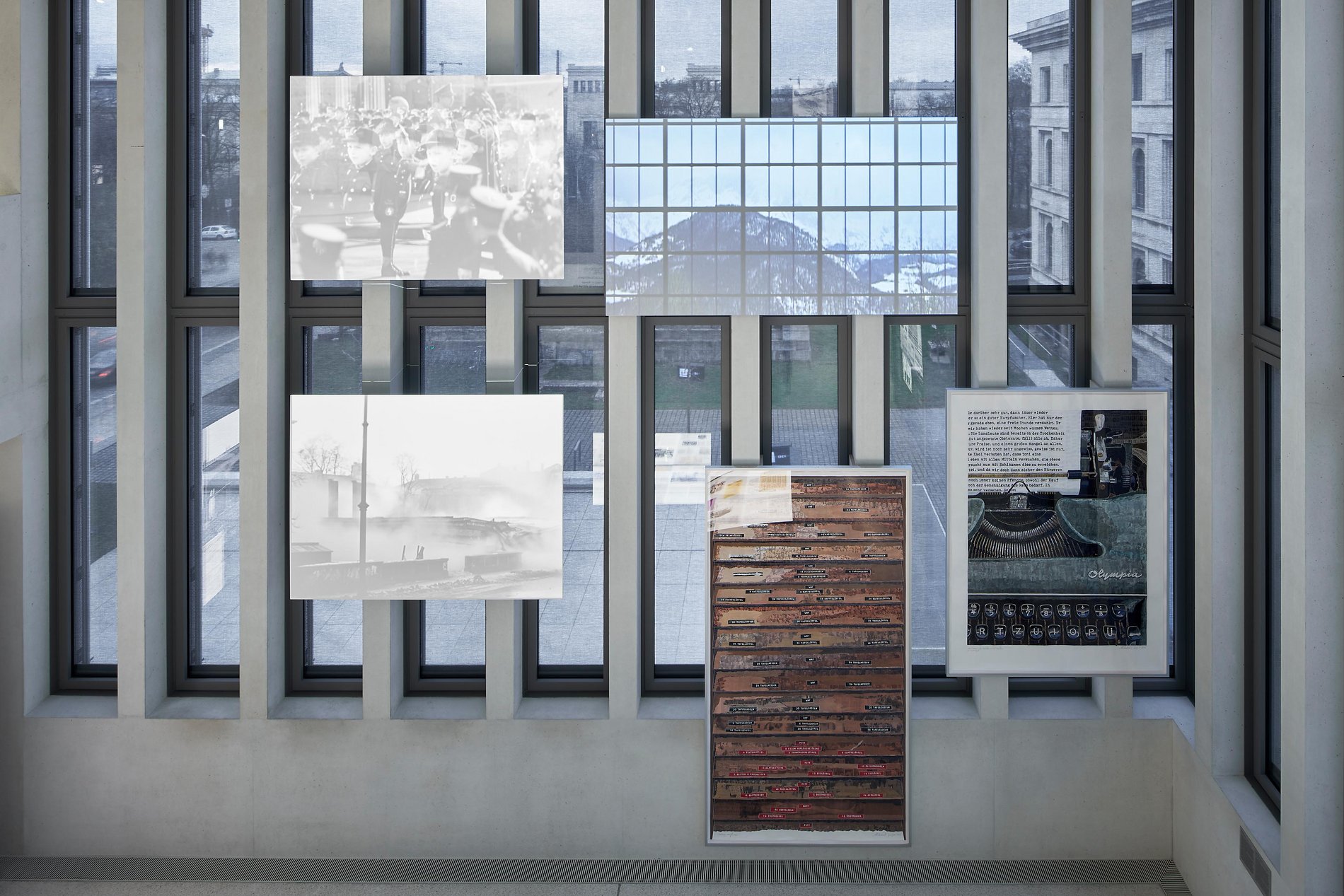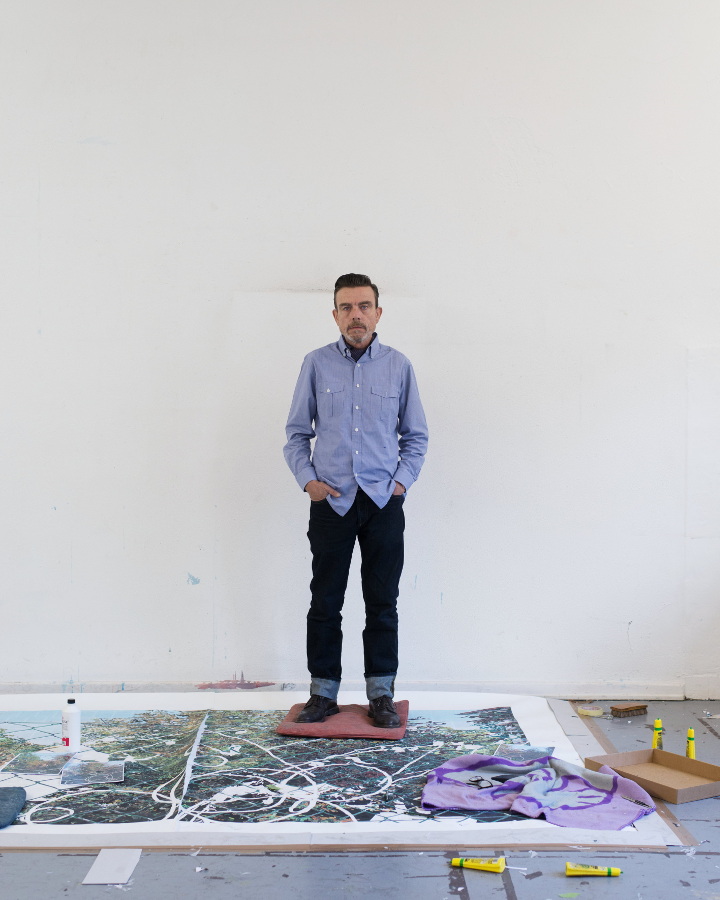Ordnung muß sein (Order must be), 2019
Collage, photo copies, pencil, ink on paper, 265 x 140 cm
im Land der Dichter und Denker (in the Land of Poets and Thinkers), 2019
Collage, photo copies, pencil, ink on paper, 198.5 x 150 cm
Das große Fenster – Einblick eines Ausblicks (The Big Window – Insight, Looking Out), 2001
Video, 12:20 min
In his videos and collages, Marcel Odenbach frequently uses a montage technique that alternates between close-ups and long shot perspectives. His works on paper unfold at various levels: from a distance, as suggestive, large pictorial surfaces, and when viewed more closely, as countless tiny individual images. His collages embody reality as the product of overlapping layers. The collage titled Ordnung muß sein shows a cutlery tray from the famed former Chancellor’s Bungalow in Bonn, where German chancellors from Ludwig Erhard to Helmut Kohl lived and received their guests. Built in the tradition of classical modernism between 1963 and 1966, the bungalow was intended to function as a symbol of a cosmopolitan German republic. Odenbach now places images relating to crimes committed by the Nazis inside the cutlery tray’s compartments. The collage titled im Land der Dichter und Denker depicts a typewriter owned by Odenbach’s grandfather. The letter in the typewriter is from his aunt, who wrote it to her mother in 1939, when she was emigrating to Brazil by ship. Odenbach’s film Das große Fenster shows the alpine landscape of Obersalzberg, near Berchtesgaden, where Hitler built his “Berghof” residence. The panoramic landscape is juxtaposed against historical footage of Hitler among his friends and associates, of soldiers and of destroyed cities, set to an audio track of birds chirping and Anton Bruckner’s Seventh Symphony, which played on German radio after the announcement of Hitler’s death. The final scene shows actor Hans Albers in the role of “Münchhausen”. The film of the same name, released in 1943, was commissioned by Joseph Goebbels, minister of propaganda, himself. In the montage, the images serve as a reminder of how staging and propaganda can distort our views of the present and history.



